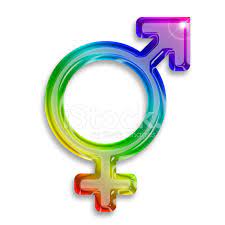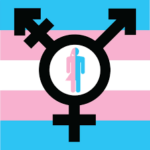When it comes to hormones, progesterone and oestrogen often steal the spotlight, and for good reason! These two hormones play crucial roles in various bodily functions, particularly in the reproductive system. Understanding their functions, interactions, and the signs of imbalance can help you navigate your health better. So, let’s break down the essentials of progesterone and oestrogen to unravel the mystery behind these powerful hormones.
What Are Progesterone and Oestrogen Anyway?
Progesterone and oestrogen are steroid hormones primarily produced in the ovaries, although they are also created in smaller amounts by the adrenal glands and placenta during pregnancy. They are crucial for regulating various bodily functions, especially in women. Progesterone is often termed the "pregnancy hormone" because it plays a vital role in preparing the body for pregnancy and maintaining it, while oestrogen is known for regulating the menstrual cycle and affecting reproductive development.How To Lower Estrogen Levels In MalesTestosterone Clitorus GrowthForced Feminization Bondage Stories
Oestrogen exists in multiple forms, including estradiol, estrone, and estriol, each serving distinct functions in the body. These hormones fluctuate throughout the menstrual cycle, peaking at different times and affecting everything from mood to physical health. Their interplay is essential for reproductive health, influencing everything from libido to mood swings.
The Role of Progesterone in Your Body’s Rhythm
Progesterone is like the nurturing guardian in your hormonal ecosystem. It comes into play primarily during the second half of the menstrual cycle, after ovulation. When an egg is released from the ovary, progesterone levels rise, thickening the uterine lining to prepare for a potential pregnancy. If fertilization doesn’t occur, progesterone levels drop, triggering the menstrual cycle’s start.
Beyond its reproductive functions, progesterone also has various effects on the rest of the body. It helps regulate mood, supports bone health, and even plays a part in sleep regulation. Low levels of progesterone can lead to symptoms like anxiety, irregular periods, and sleep disturbances, showing just how vital this hormone is to your overall well-being.
Oestrogen: The Hormone That Powers Your Cycle
Oestrogen is often referred to as the hormone that drives the menstrual cycle since it helps regulate the growth and shedding of the uterine lining. It is at its peak just before ovulation, signaling the body that it’s the right time for conception. This hormone is essential for developing secondary sexual characteristics, such as breast development and the widening of hips, and plays a part in maintaining a healthy libido.
However, oestrogen doesn’t just influence reproductive health; it also affects other bodily systems. It supports cardiovascular health, helps maintain bone density, and even impacts mood and cognitive functions. Consequently, fluctuations in oestrogen levels can significantly affect your emotional state, energy levels, and overall health.
How Progesterone and Oestrogen Work Together
Progesterone and oestrogen are like dance partners in a hormonal ballet, working together to maintain balance in the body. During the first half of the menstrual cycle, oestrogen dominates, promoting the growth of the uterine lining and preparing the body for ovulation. Once ovulation occurs, progesterone takes the lead, stabilizing the uterine lining for potential implantation of a fertilized egg.
This cooperation isn’t just limited to the menstrual cycle; it extends to various physiological processes. For instance, a well-balanced ratio of these hormones is crucial for fertility and can influence conditions like endometriosis and polycystic ovary syndrome (PCOS). When these hormones fluctuate in harmony, the body functions optimally, but when they don’t, it can lead to a series of health issues.
Signs of Hormonal Imbalance You Should Know
Recognizing the signs of hormonal imbalance can be your first step toward better health. Symptoms of low progesterone may include irregular periods, mood swings, and difficulty sleeping. On the other hand, excess oestrogen can cause bloating, breast tenderness, and heavy menstrual bleeding. It’s crucial to pay attention to these signals your body sends out, as they can indicate deeper hormonal issues.
Moreover, hormonal imbalances can also manifest through weight changes, fatigue, and changes in libido. If you’re experiencing a combination of these symptoms, it may be a sign that your progesterone and oestrogen levels are out of whack, and it might be time to consider some adjustments in lifestyle or consult a healthcare professional.
Natural Ways to Balance Progesterone and Oestrogen
If you suspect a hormonal imbalance, there are several natural ways to help restore balance. First and foremost, maintaining a healthy diet rich in whole foods can significantly impact your hormone levels. Foods high in fiber, healthy fats, and phytoestrogens—like flaxseeds, soy, and leafy greens—can support hormonal health and help regulate oestrogen levels.
Physical activity is another key player in hormone balance. Regular exercise can help reduce stress levels and improve your body’s ability to metabolize hormones, including progesterone and oestrogen. Additionally, practices such as yoga and meditation can help manage stress, which is essential since high stress can lead to hormone imbalances.
When to See a Doctor About Your Hormones
If you’re experiencing persistent symptoms of hormone imbalance, it’s wise to consult a healthcare professional. They can evaluate your symptoms, possibly conduct blood tests to measure hormone levels, and provide tailored advice or treatment options suited to your needs. It’s essential to advocate for your health by seeking professional guidance when something doesn’t feel right.
Don’t forget that hormonal health is complex and can be influenced by various factors, including diet, lifestyle, and underlying health conditions. A healthcare provider can help you navigate these complexities and determine whether medical intervention or lifestyle changes are necessary.
FAQs About Progesterone and Oestrogen Answered
Q: Can I take supplements to balance my hormones?
A: While there are supplements that claim to balance hormones, it’s crucial to consult a healthcare provider before starting any new supplement regimen. They can help determine the right balance for your unique situation.
Q: Do men have progesterone and oestrogen?
A: Yes, men produce both progesterone and oestrogen, although in smaller amounts compared to women. These hormones play essential roles in male reproductive health and overall hormone balance.
Understanding progesterone and oestrogen is key to grasping your body’s functions and maintaining overall health. By recognizing the roles these hormones play and listening to the signals your body sends, you can take proactive steps towards achieving balance. Whether through lifestyle adjustments or professional guidance, taking charge of your hormonal health is a powerful step toward feeling your best!


